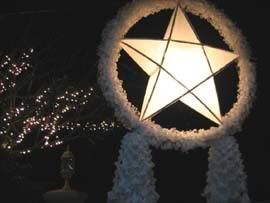
You've done
Las Posadas. So now try
Simbang Gabi.
Here's some background information directly from the Philippines and the schedule of Masses in the Diocese of San Jose.Below is an article by
Diana Macalintal that originally appeared in
Simple Gifts, Vol. 6, No. 6, December, 2000.
Adapting Music for Liturgy: Simbang GabiOn one of my visits to the Philippines I took a walk in one of the barrios, a small village town where some homes still used gas lamps for light. The sun had long gone, and the dirt road was empty of the occasional jeepney or carabao. The moon had not yet risen, but the sky was filled with starlight. Still, all around me was pitch black except for a spot of light in the distance. As I walked toward the light, I saw it came from a star, a
parol, hanging from the eave of the neighbor’s porch. Like those travelers long ago, I was drawn to that bright star and led to a place of welcome and shelter from the darkness. It was the Advent season in the Philippines, and the
parols hung brightly from every house signaling the family’s welcome of the Word made flesh.
During the nine days before Christmas, Filipinos traditionally celebrate
Simbang Gabi, or “church of night” by having Mass each day in the early morning which includes catechesis and food. The custom is also called
misa de gallo or “mass of the rooster” because the original celebration took place at dawn before the start of the farming day and at the end of a long night of fishing. The missionaries who began
Simbang Gabi used it as a way to catechize and evangelize and to pass on the traditions of the Filipino people. Food and music are integral parts of every gathering, so a fiesta of food and Christmas music would follow the Mass each day.
Simbang Gabi is often called the longest Christmas party in the world! Though Christmas carols are sung during these Advent-time masses, the focus is on joyful longing and thanksgiving today for the one who is still to come. Today,
Simbang Gabi is usually celebrated at night to accommodate the modern work schedule, though the elements of prayer, catechesis, food and music are still at the heart of the celebration.
Most people today would find it difficult to devote the nine evenings before Christmas to gathering together for Mass. However the Latino community has made it a priority by celebrating
Las Posadas during this time. Perhaps with some catechesis, preparation, and the enticement of food and festivity, more communities can spend the days before Christmas in prayer and celebration rather than at the malls and gridlocked highways. Here is one way to incorporate the tradition of
Simbang Gabi into your community.
Each evening Mass would use the readings of the day and retain the restrictions of Advent. However a festive song of praise would follow Communion which would lead directly into more feasting and music in the parish hall or at a parishioner’s home. As part of the homily, an activity is prepared that highlights the Filipino traditions and connects it to the spiritual preparation for Christmas. The “O Antiphons” also begin on December 17th. They are each day’s antiphons for the Magnificat at Evening Prayer. They are also the Gospel Acclamation verses for each day’s Mass (see Lectionary #202). Be sure to sing the corresponding verse of “O Come O Come Emmanuel” as part of each day’s celebration.
Day One – December 16The first reading for the Saturday of the second week of Advent speaks of Elijah and the fiery chariot in the sky. Build your own
parol using wooden dowels, string, glue, and rice paper or luminaria paper. A
parol is a three-dimensional star illuminated by a lit candle or light bulb inside. Some Filipino stores will have designs for
parols. (Here's a web site that shows you
how to make your own parol.) As a song of praise, sing “We Three Kings” or Bernadette Farrell’s “Christ Be Our Light” (OCP).
Day Two – December 17The Third Sunday of Advent is traditionally known as Gaudete Sunday, or “rejoice!” The Gospel today challenges us with the question “what must I do?” John the Baptist tells us “let the one with two coats give to the one who has none.” As part of the day, collect clothing to be donated to a local shelter. As a community take these clothes and a potluck supper to the shelter to share in a fiesta with those most in need of rejoicing. For the Sunday Mass, use Bob Hurd’s “I Want to Praise Your Name” (OCP) as a song of praise. Or script the Gospel reading so that the assembly can sing the refrain of “O Come O Come Emmanuel” at various points.
Day Three – December 18The Gospel tells of Joseph’s dream of how Mary is to bear a son and name him Emmanuel, “God is with us.” Take some time at the Mass to reflect on how you were named. Invite some parents to share how they named their children and what those names mean. Discuss in small groups the importance of being named a “Christian.” Sing “You Are Mine” (GIA) by David Haas as a song of praise.
Day Four – December 19Today’s Gospel story of Zechariah the priest becoming mute is highly dramatic and vivid in its images. Members of the community may want to “proclaim” this Gospel through a short play that involves the children and the elders of the community. For a song of praise, try “I Will Sing/Cantaré” by Julie and Tim Smith (RPI).
Day Five – December 20What have you conceived this year? What do you hope will come to birth in you this Christmas? Create a litany of life, inviting the assembly to share in a word or a short phrase something that has been born in them or something they hope to bring to birth. As a response after three or four phrases, sing the last line of the Bernadette Farrell’s “God Beyond All Names” (OCP) which reads “in our living and our dying we are bringing you to birth.”
Day Six – December 21As we near the end of the year, today’s readings challenge us to see again those against whom we have not removed judgement. What steps can we take to be able to say “you have no further misfortune to fear”? What would it take for us to say to them “blessed are you among women, blessed are you among men”? As today’s activity, write a forgiveness letter to someone you have yet to forgive. You don’t need to send it, just write it. During the Christmas season you may want to consider sending the letter along with your Christmas card to that person. As a song of praise, sing “Healing Is Your Touch” by Monica Brown (RPI).
Day Seven – December 22Mary’s greeting to Elizabeth this day gives us a chance to look at how we greet one another. In the Filipino culture, elders are greeted with a “
mano po.” The younger person takes the elder’s hand and lifts it to his and her own forehead while saying “
mano po,” which literally means “your hand, please, Sir/Ma’am.” It is both a greeting and a blessing. As part of the sign of peace today, invite the assembly to give “
mano po” to the elders of the community. These last few days before Christmas, use the spiritual “Soon and Very Soon” as your song of praise.
Day Eight – December 23Children and their parents are the central image in today’s readings. It may be a good time for parents to tell their children their hopes for them and also to say to them how they see the “hand of the Lord” upon them. Or ask each person to write an imaginary letter to themselves from God their Father. Have them imagine how God would answer the question about them “what will this child be?”
Day Nine – December 24
This Fourth Sunday of Advent, have a procession of stars using the
parols that your community made the first night of Simbang Gabi. These
parols can be processed in at the Sunday Mass and left up for the Christmas season beginning that night.
![]()
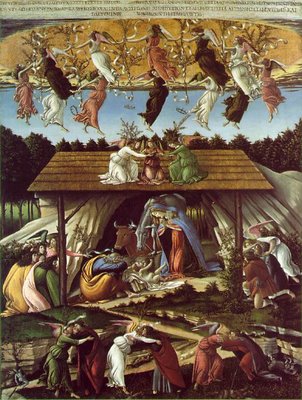
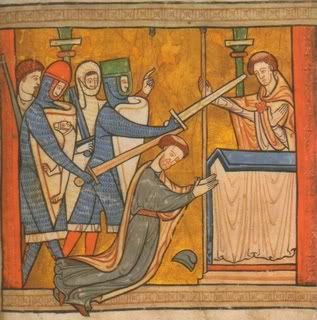
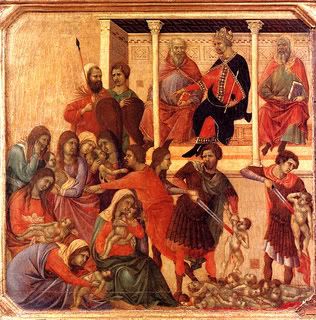
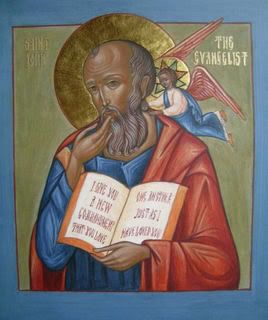
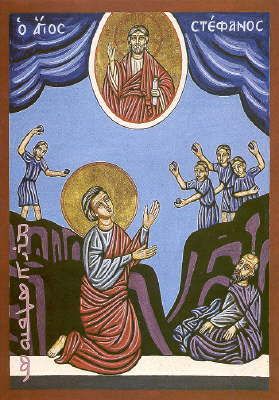
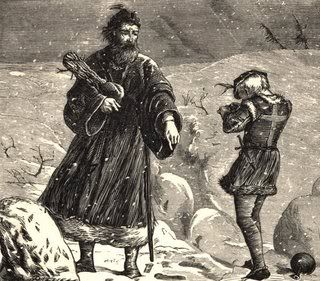

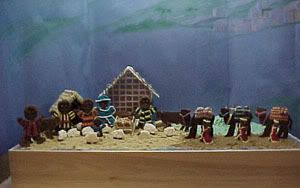 Creating a gingerbread house is a great holiday project for families. You can find a lot of patterns and kits by Googling. A simple
Creating a gingerbread house is a great holiday project for families. You can find a lot of patterns and kits by Googling. A simple 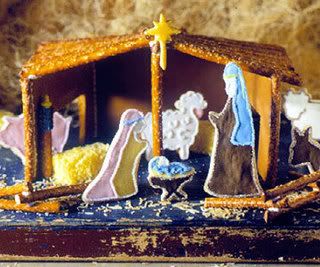 Here is one recipe for an
Here is one recipe for an 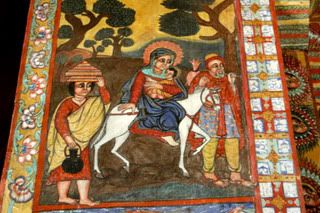
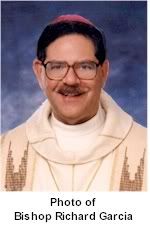

 You've done Las Posadas. So now try Simbang Gabi.
You've done Las Posadas. So now try Simbang Gabi.  Can't figure out how to
Can't figure out how to 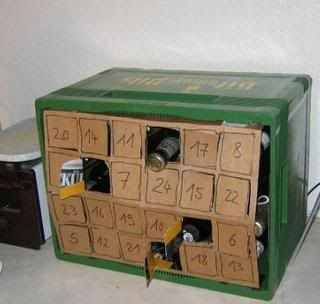
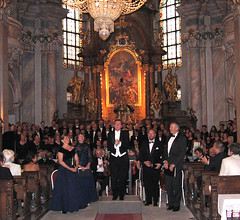 I'm a proud Alto II member of the
I'm a proud Alto II member of the